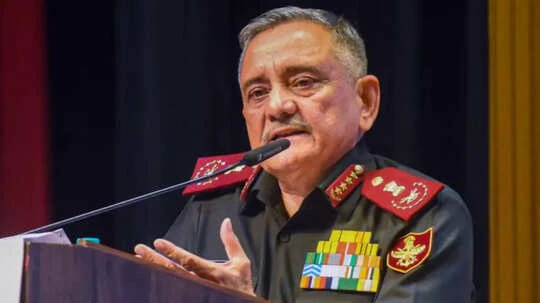India is witnessing a significant step in its military thought and jointness with the launch of RAN SAMWAD-2025, a first-of-its-kind tri-service dialogue on war, warfare and warfighting.
The two-day event, hosted at the Army War College in Dr Ambedkar Nagar, Madhya Pradesh, is designed to serve as a sui generis forum where serving military professionals take centre stage in shaping the nation’s strategic discourse.
The opening day of the dialogue will see Chief of Defence Staff (CDS) General Anil Chauhan delivering the inaugural address, setting the tone for discussions that span the evolving character of modern conflict. Defence Minister Rajnath Singh is scheduled to deliver the plenary address on the final day, underlining the government’s emphasis on jointness, capability development and strategic autonomy. A series of Joint Doctrines and the Technology Perspective & Capability Roadmap will also be released, signalling a long-term vision for enhancing operational effectiveness and military preparedness.
Unlike conventional seminars dominated by academics and retired experts, RAN SAMWAD-2025breaks new ground by placing serving officers at the forefront of its thematic sessions. Each discussion will be driven by first-hand operational insights, battlefield experiences and professional reflections from officers who have recently commanded troops in conflict zones or participated in evolving military operations. This “in-uniform narrative” lends authenticity and immediacy to the dialogue, moving beyond theory to practical realities of combat and deterrence.
The event has been conceptualised under the guidance of the CDS, with Headquarters Integrated Defence Staff and the Centre for Joint Warfare Studies (CENJOWS) collaborating with the Army Training Command (ARTRAC). Together, they have designed RAN SAMWAD as a dynamic forum aimed at strengthening inter-service synergy, communication and cooperation on issues central to warfighting in the 21st century.
The two-day seminar will bring together India’s top military leadership from the Army, Navy and Air Force, alongside distinguished defence experts, leaders from the defence industry and international security professionals. The thematic focus spans a wide spectrum of contemporary challenges, including Information Warfare, Grey Zone Threats, Integrated Operations and Future Combat Technologies. Each of these areas reflects the changing nature of modern conflict, where the boundaries between peace and war are increasingly blurred, and where the decisive edge lies in speed, integration and technology adoption.
Globally, major powers such as the United States, China and Russia have long cultivated platforms for joint professional military discourse. India’s move with RAN SAMWAD represents both a recognition of this need and a uniquely Indian adaptation rooted in operational realities. The seminar thus reflects New Delhi’s determination to evolve from service-specific doctrines to integrated perspectives that can address not just national security challenges but also regional and global security concerns.
Another unique element of RAN SAMWAD-2025 is its intent to become an annual tri-service tradition. While this year’s edition is hosted by the Indian Army, the Navy and the Air Force are expected to lead subsequent editions in rotation, thereby institutionalising the process of joint dialogue across the Services. Over time, this could help India build a sustained culture of joint professional reflection, something long seen as essential for integrated theatre commands and multi-domain operations.
At a deeper level, the dialogue speaks to the evolving idea of India’s strategic autonomy. In an era marked by intensifying great-power competition, grey-zone coercion and rapidly advancing technology, India’s ability to craft indigenous doctrines, nurture jointness and anticipate future challenges becomes central to its security. By offering a platform where military leaders speak in their own voice, RAN SAMWAD underscores the seriousness with which the Indian armed forces are approaching this responsibility.
Ultimately, RAN SAMWAD-2025 aspires to become more than just a seminar. It aims to emerge as a premier forum for India’s military discourse, one that is credible, practical, and globally relevant. By combining operational wisdom with doctrinal innovation, the dialogue could well mark the beginning of a new era in how India thinks about – and prepares for – the wars of the future.
